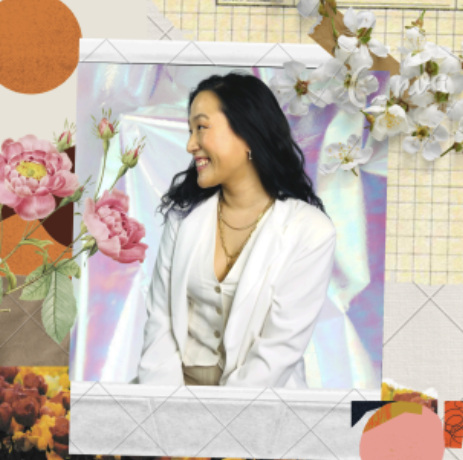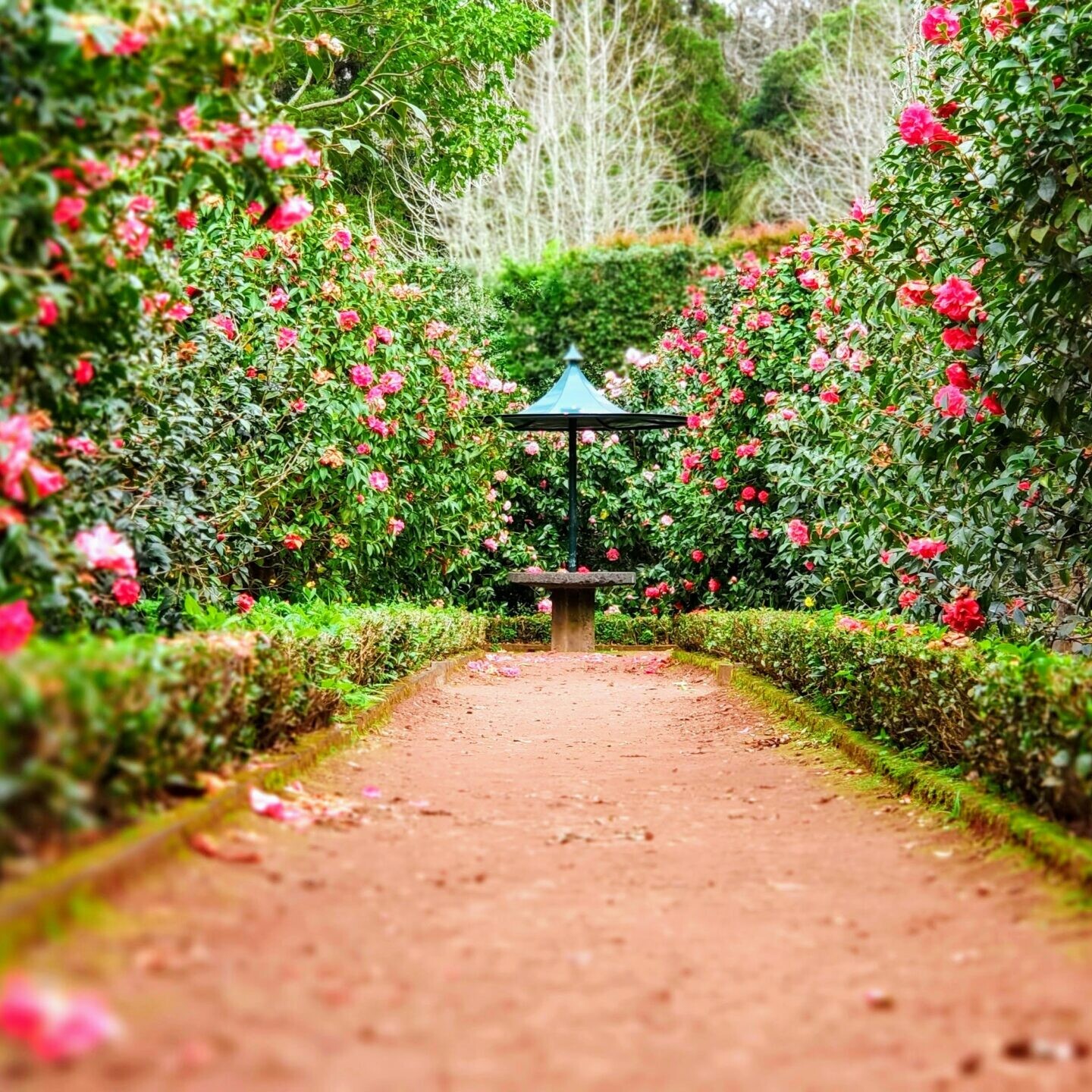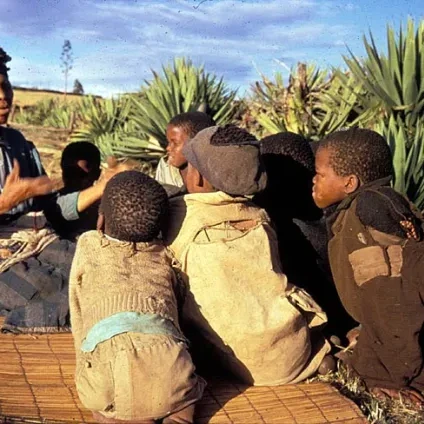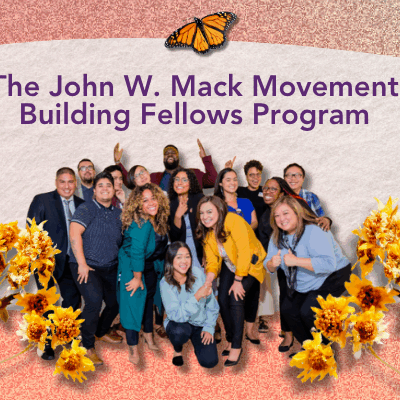Yoo-Jin Kang’s reflection on leaving behind a legacy of care as a future ancestor is part of Network Weaver’s BIPOC Editorial series. Learn more about the series and our submissions guidelines here. We invite you to connect with us at [email protected]
What inspired you to write this particular piece?
I’ve been reflecting on how prevalent workplace trauma, burnout, and fatigue are, especially in movement, public health, and social justice spaces. It made me curious about what rituals and traditions of care could be implemented to show up more fully in the workplace and beyond. Whether we acknowledge it or not, every workplace holds traditions, norms, and rituals. Some norms and rituals are connecting emotionally honest, relationship-centered, and bridging. Other norms and rituals can be disconnecting, competitive, isolating, and sometimes traumatizing and violent. When workplaces are steeped in old ways of being, we can lose a lot of opportunities to build something new and create communities of care that better represent the world we want to see. This piece was inspired by the inquiry- what would it look like to navigate my life as a future ancestor? As a person who knows that I can leave rituals, traditions, and legacies behind- in the workplace and beyond.
What does liberation mean to you?
This is such a beautiful and powerful question. I’ve been thinking a lot about liberation, given our current political and global time. For me, liberation is an ongoing practice that happens when I start to free myself from the chains of oppression, systemic racism, sexism, and all the other -isms that have worked so hard to program my sense of self and my thoughts. Liberation is community care. Liberation is creating a world where everyone’s needs can be abundantly cared for and where people who engage in harm have opportunities for reconciliation, accountability, and healing. Liberation means building the world we want to see and not leaving anyone behind. Liberation requires commitment, accountability, tenacity, tenderness, and doing the hard work of meeting ourselves right where we are and loving ourselves and others through the mess. That’s what liberation means to me.
As a first-generation immigrant and the eldest daughter of Korean immigrant parents, I’ve often reflected on legacy and generational care. In my family, I’ve learned invaluable lessons about integrating intentional care to foster community, enact love through action, and embrace accountability during challenging times when we cause harm.
In the spirit of community, I’d like to share two lessons that have helped me cultivate intentional community both within my workplace and beyond. May these lessons inspire you to integrate intentional care into your life, work, and community spaces, guiding you toward collective liberation. The world we hope to see is possible now.
1. Navigate your space and your life as a Future Ancestor:
The term “ancestor” typically invokes thoughts of those who have come before us. However, I’ve come to understand the concept of a Future Ancestor through a poignant photo essay by Josué Rivas titled “I Am A Future Ancestor” Rivas reflects on his role as both father and son, recalling memories of his father’s passing when he was just seven years old. He writes, “Digging deep into that trauma is difficult, but my traditional teachings as an Indigenous man tell me there is a larger purpose for my healing. Because all living and dead things are connected, my healing and being able to live well honors not just my ancestors, but also the future generations.” His words resonate deeply with my experience of growing up in a collectivist and family-oriented environment. As an immigrant, living far from most of my extended family for most of my life, I’ve mostly come to know my ancestors through the stories shared about them in their deaths. Honoring my ancestors means acknowledging that I stand on the shoulders of so many people before me and that I likely embody their light, hopes, shadows, griefs, and strengths in ways I may not fully understand. Many of these ancestors did not get to witness or relish in the fruits of their labor, and yet they persisted anyway. As a future ancestor, I aim to do the same, understanding and hoping that the building blocks of the work I put into this world add to a larger mosaic of healing for many generations to come.
2. Practice “nunchi” (눈치), or the art of engaging in intentional emotional intelligence:
Nunchi, a critical aspect of Korean culture and relationship-building, is similar to employing a sharp emotional intelligence with the collective in mind. Nunchi helps me anticipate the spaces I’ll be occupying and be mindful of my presence as to whether I will support or unintentionally harm a space. Euny Hong, a journalist from the New York Times, explains in her opinion piece “The Korean Secret to Happiness and Success” that “Nunchi is the art of sensing what people are thinking and feeling, and responding appropriately. It’s speed-reading a room with the emphasis on the collective, not on specific individuals” Nunchi was taught to me early and young. For me, nunchi is embodied in my mother’s teachings, such as never arriving at a friend’s home empty-handed and sending soup to a sick friend. In workplace and community spaces, nunchi involves acknowledging newcomers, properly pronouncing people’s names, using the correct gender pronouns, acknowledging and uplifting others’ work, and creating spaces where the most people feel cared for. Care, like nunchi, is actionable and tangible. Care can mean anticipating accommodation needs, providing water and nourishment for participants in a training, offering multiple payment options, scholarships, and sliding scales, and bringing the voices of the most impacted to the center when we as leaders, need to make big decisions. In closing, the principles of being a Future Ancestor and practicing nunchi converge to cultivate an intentional community and foster heart-centered connections. By acknowledging our interconnectedness and interdependence across generations and cultivating sensitivity to the needs of our communities, we can cultivate workplaces and spaces that serve as a bridge toward our collective liberation. As we endeavor to practice the world we envision, may the lessons of intentional care guide us toward a future where all can thrive for many generations to come.

Yoo-Jin Kang (she/hers) is a first-generation Korean American from Seattle, WA, and the DC/Maryland area. She is an eldest daughter, big sister to Fran, an artist, and lover of stationery and fine-tip pens. As an experienced executive coach, strategist, and healing justice practitioner, she has over 10 years of experience in antiracist equity, public health, and trauma-informed care. Yoo-Jin integrates holistic healing and somatic practices into her work and is the founder of Yoo-Jin Kang Consulting, offering trauma-informed career coaching, healing sessions, astrological readings, and workshops, particularly for BIPOC, queer, and first-generation communities. Yoo-Jin is also the founder of the Eldest Daughters Collective, a national healing collective for BIPOC eldest daughters.
Yoo-Jin’s work has been recognized with awards including the Sisters in Public Health Award, UC Berkeley Dean’s Health Equity Award, and American University’s Inclusive Excellence Award. She is pursuing a Master of Public Health at UC Berkeley, focusing on Community Health & Anti-racist Praxis, and holds two Bachelor’s degrees from UMBC.
Network Weaver is dedicated to offering free content to all – in support of equity, justice and transformation for all.
We appreciate your support!



